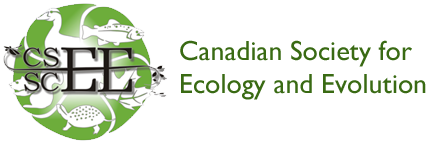PHD position in entomology, restoration ecology and biodiversity: Biodiversity and health of pollinating insects on restored mining sites in the boreal region
Project description: Nested in the boreal forest, restored and revegetated mine tailings sites are open sites covered with flowering plants that can provide interesting habitats for many pollinating insects such as hoverflies, butterflies, bees and bumblebees. Reclamation using appropriate cover systems to contain mine tailings aims to control contamination of these sites prior to revegetation. However, it is questionable whether this reclamation will guarantee healthy habitats for the reestablishment of diverse insect communities. Pollinating insects are considered effective bioindicators of ecosystem health, due to their sensitivity to environmental stresses. The research project will take place on reclaimed mine tailings sites where agronomic grasses and legumes have been seeded, and on agricultural control sites. Insects will be passively and actively captured, and their measurements and metal bioaccumulation will be measured. Insect-flower food webs will be studied using environmental DNA techniques. The results will help determine which reclamation and revegetation methods promote greater biodiversity and healthier insect pollinator communities. The project will be carried out in collaboration with a public partner managing abandoned mine sites to be rehabilitated in Quebec, as part of a multidisciplinary mining reclamation research team. The project will contribute to improving knowledge of the conservation and biodiversity on reclaimed mine sites.
Location: The successful candidate will be based at the Research Institute on Mines and the Environment (RIME) at the Rouyn-Noranda campus of the Université du Québec en Abitibi-Témiscamingue (UQAT). The work will be co-supervised by Prof. Marie Guittonny at RIME and Dr. Julia Mlynarek at the Montreal Insectarium (Espace pour la Vie), and supported by a team of specialized professionals.
Project duration: 4 years - beginning winter 2025 or subsequent sessions depending on availability of candidates.
Research funding: Alliance project of the Natural Sciences and Engineering Research Council of Canada (NSERC) and the UQAT-Ministère des Ressources naturelles et des Forêts (MRNF) du Québec research partnership on the reclamation of abandoned mine sites (ResMinA).
Compensation: Tax-free fellowship ranging from $23,000 to $26,000 CAD/year.
Qualifications:
- A strong academic record, with a master’s degree completed in entomology, ecology, agronomy, biology or any other field deemed relevant.
- Autonomy, rigor, curiosity, ability to synthesize, with aptitude for teamwork.
- Experience doing field work.
- Experience in insect identification.
- Skills in statistical analysis of ecological data.
- Demonstrated ability to read and write scientific texts in English.
- Proficiency in genomics and bioinformatics will be considered an asset.
- Under-represented people in science (women, members of First Nations, newcomers), are strongly encouraged to apply.
To apply: Send 1) cover letter, 2) resume, 3) university transcripts and 4) names and contact information of at least two references or two letters of reference. The position will remain open until filled. Send your application (or questions) to marie.guittonny@uqat.ca and julia.mlynarek@montreal.ca.
Research at IRME
UQAT’s research institute on mines and the environment (RIME), located in the heart of a region rich in active mining sites, is the only university in Quebec to have made the mining sector a distinctive element of its contribution to science and technology. RIME supports a research program that targets the development of environmental solutions for the entire life cycle of a mine.
IRME-UQAT is:
- a dynamic, multidisciplinary environment;
- unique proximity to Quebec mining companies;
- several mining research chairs;
- state-of-the-art laboratories and equipment;
- professors recognized worldwide for their expertise;
- relevant, community-based research projects.
Study in the heart of Quebec’s great outdoors
Located in the heart of a territory where wide-open spaces, lakes and forests stimulate creativity and the emergence of talent, UQAT is naturally different!
A region of 22,000 lakes in the heart of the boreal forest, Abitibi-Témiscamingue vibrates to the rhythm of a creative population, new ideas and daring projects. View student testimonials!
A world of high-calibre research
UQAT’s research activities are producing remarkable results in many areas of scientific activity. According to the 2020 rankings of independent firm RE$EARCH Infosource Inc. UQAT ranks among the top 3 Canadian universities in terms of research intensity per professor, among Canadian universities in the general category (excluding universities with a faculty of medicine and those with a single vocation). With a research volume of $16.2 million per year and state-of-the-art laboratories, UQAT represents an exceptional environment for graduate studies.
Research at the Insectarium de Montréal
While the Insectarium’s educational and outreach activities are well known, its conservation and research activities represent one of its most important pillars. At the Insectarium, we focus our research on biodiversity conservation, the development of cutting-edge monitoring tools and taxonomy. The team is also studying the impact of environmental change on insects. In the heart of Montreal, the Insectarium maintains a scientific collection of over 300,000 specimens, a laboratory for mounting naturalized specimens and access to molecular laboratories.
